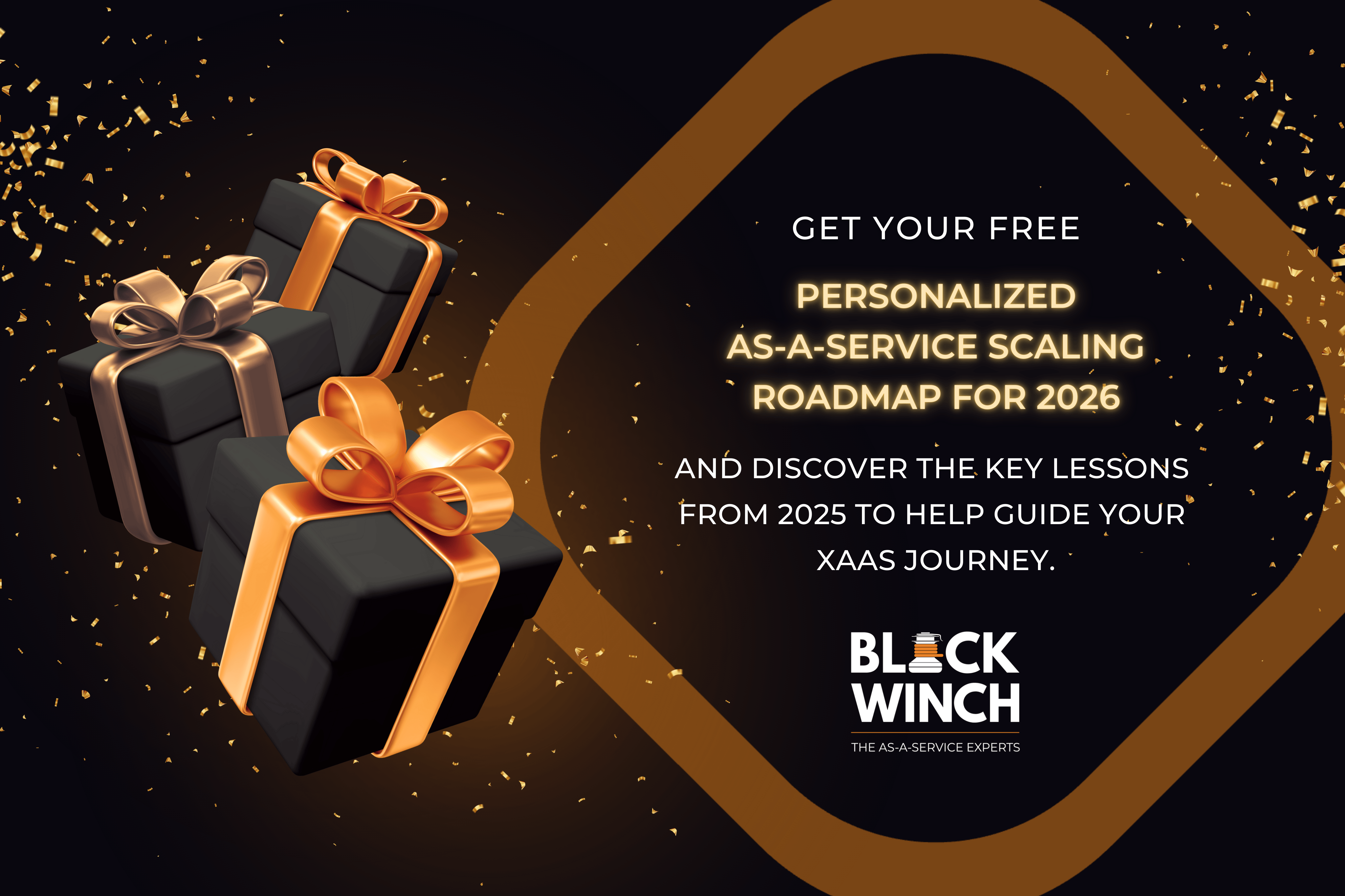Last June, Black Winch was invited to present at the Agoria event on ‘’'As-a-service models for a green transition''. Agoria is the organisation representing the manufacturing industries in Belgium.
This event gathered European manufacturing, customers and leading suppliers to discuss how as-a-service business models can concretely be implemented by organisations looking to secure recurring revenue models, develop more shareholder value and become more circular.

What we learnt from the event:
Ilias Iakovidis PhD, Adviser on Digital aspects of Green Transition at the European Commission - discussed the 3 main pillars for a circular economy to flourish:
- The capacity to design sustainable products – meaning products that are durable, re-usable, reparable, refurbishable, recyclable etc.
- The proliferation of sustainable Business models – e.g. Product as a service
- The ''Digital Product Passport'' as a key enabler
Have you ever heard of the Digital Product Passport (DPP)?
''The EU digital product passport's objective is to gather information about a product and its supply chain. All parties, including customers, may better understand the products they use and their environmental impact.''
The expected benefits of the DPP include:
- Tracking of raw materials extraction / production, supporting due diligence efforts
- Enabling manufacturers to create digital twin products
- Tracking the lifecycle of a product, enabling services related to its remanufacturing, reparability, re-use/re-sale/second-life, recyclibily etc.
- Allowing citizens to have access to relevant and verified information related to the products they own or are considering to buy / rent
- Benefiting market surveillance authorities and custom authorities

The DPP will of course apply to the manufacturing industry and should therefore be closely monitored. Indeed, as presented by Kristof Boodts, Senior Director at Deloitte, the European manufacturing industry is responsible for 17% of gross value added, while emitting 31% of industrial emissions (source: SystemIQ). With this in mind, it’s easy to understand why transitioning to circular business models is of growing importance for the manufacturing market.
As-A-Service is a buzzword with multiple meanings

Yann Toutant, CEO and co-founder of Black Winch, the world’s exclusive authority in Product-As-A-Service, detailed concretely what As-A-Service means and how organisations can make it happen. A simple way to define As-A-Service is to look at history:
- In the 80’s, renting equipment meant using ‘equipment finance’ solutions: simply put you spread out the total costs of the devices over time.
- In the early 90’s, independent players (Econocom, CHG, Leaseplan for cars, Xerox for copy machines) entered the market with their capacity to take residual values.
- In the year 2000, in order to answer a market demand, managed services (deployment, maintenance, training etc.) were added to the solution, to provide a full service offer.
- Today, the next disruption consists in adding flexibility to the existing solutions : Pay per use and/or opt in/opt out (cancel subscriptions at any time). This is what As-A-Service means.
Switching to As-A-Service is complex and starting the journey can be scary.
What to focus on? Which areas to look at in priority?
- Strategy: Define Go-To-Market and integrate As-A–Service in company’s vision
- Sales: Pick and train your sales champions and define reward scheme
- Marketing: Build value proposition and activate lead generation campaigns
- Funding: Map and shortlist potential funders
- Finance: Define margin and revenue recognition approaches
- Operations: Deploy recurring payment and billing tools
- Circularity: Define milestones if the circularity ambition
- Ecosystem: Onboard suppliers and ensure data reporting

Bringing your ecosystem on board is of paramount importance when deploying As-A-Service models.
Dr Daniel Andrews, Research Fellow at the Advanced Services Group presented their Transformation Game deployed (based on snakes and ladders), played by manufacturers, customers, and other stakeholders across the value network, to understand what it takes to build and successfully launch a product-As-A Service programme.
Early Enablers (Ladders) include:
- Have a very convincing case study
- Identify parallel activities across network
- Create a common, agreed language and metrics
Early Inhibitors (Snakes) include:
- Insufficient evaluation of the technological and economic feasibility
- Did not understanding the customer’s requirements correctly
- Did not have, or understand, the internal/ecosystem’s capability or capacity to deliver value
The top finance & tax considerations to take into account when transiting to As-A-Service models

Tax and finance implications are also challenges (snakes) to look at. And this was brilliantly explained by Charlotte Degadt, Partner at Deloitte. Those considerations include:
- Intellectual property
- Tax and legal operations through data solutions and ERP
- Transactional compliance opportunities and challenges for VAT and customs
- Efficient capital expenditure and financing
- Tax and legal operating model
- Virtual workforce and new reward strategies
- Flexible contracts, cloud contract and new era for SLAs
Overall, if we have to remember one thing from this great event.
XaaS is our pass to a long-term future. We can create a circular economy that benefits both the world and our business lines by embracing servitization, providing ongoing value, and leveraging unique data.

Get in touch with us if you want to know more!
Book a 30 min call here https://calendly.com/blackwinch/30min for an inspiration session on how we can build or scale up your As-A-Service solution.




